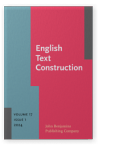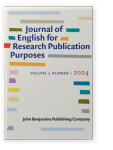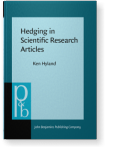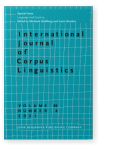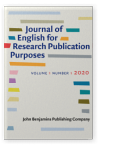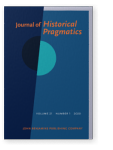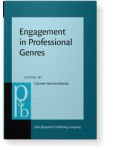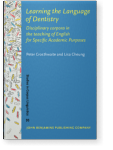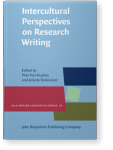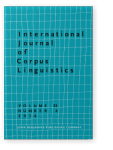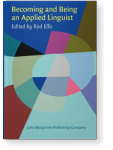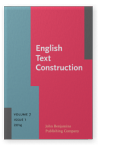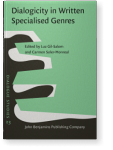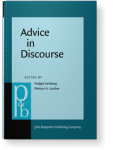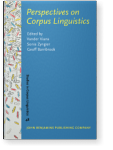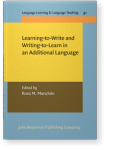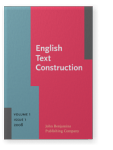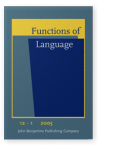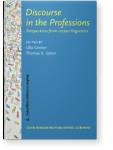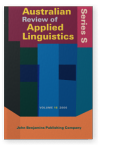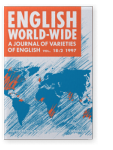Ken Hyland
List of John Benjamins publications for which Ken Hyland plays a role.
Journals
ISSN 2590-0994 | E-ISSN 2590-1001
Title
Hedging in Scientific Research Articles
Ken Hyland
[Pragmatics & Beyond New Series, 54] 1998. x, 308 pp.
Subjects English linguistics | Germanic linguistics | Natural language processing | Pragmatics
2024 “People should get their booster”: Stance towards Covid vaccination in news and academic blogs International Journal of Corpus Linguistics: Online-First Articles | Article
Debates around the efficacy and dangers of vaccination have taken on critical importance with the Covid pandemic and WHO naming vaccine hesitancy as a major global health threat. We explore how writers use two types of blog, academic and journalistic, to promote key public health messages around… read more
2021 The Covid infodemic: Competition and the hyping of virus research Language and Covid-19, Mahlberg, Michaela and Gavin Brookes (eds.), pp. 444–468 | Article
Covid-19, the greatest global health crisis for a century, brought a new immediacy and urgency to international bio-medical research. The pandemic generated intense competition to produce a vaccine and contain the virus, creating what the World Health Organization referred to as an ‘infodemic’… read more
2020 Text-organizing metadiscourse: Tracking changes in rhetorical persuasion Journal of Historical Pragmatics 21:1, pp. 137–164 | Article
Published academic writing often seems to be an unchanging form of discourse with its frozen informality remaining stable over time. Recent work has shown, however, that these texts are highly interactive and dialogic as writers anticipate and take into account readers’ likely objections,… read more
2019 Foreword: Bringing in the reader Engagement in Professional Genres, Sancho Guinda, Carmen (ed.), pp. xi–xiv | Foreword
2019 Foreword: Corpora and specialised English in the university curriculum Learning the Language of Dentistry: Disciplinary corpora in the teaching of English for Specific Academic Purposes, Crosthwaite, Peter and Lisa Cheung, pp. xi–xiv | Foreword
2018 Preface: Academic writing and non-Anglophone scholars Intercultural Perspectives on Research Writing, Mur-Dueñas, Pilar and Jolanta Šinkūnienė (eds.), pp. vii–x | Preface
2018 Academic lexical bundles: How are they changing? International Journal of Corpus Linguistics 23:4, pp. 383–407 | Article
An important component of fluent linguistic production and a key distinguishing feature of particular modes, registers and genres is the multi-word expressions referred to as ‘lexical bundles’. These are extended collocations which appear more frequently than expected by chance, helping to shape… read more
2016 A very peculiar practice Becoming and Being an Applied Linguist: The life histories of some applied linguists, Ellis, Rod (ed.), pp. 155–174 | Article
2014 Interaction in two journalistic genres: A study of interactional metadiscourse English Text Construction 7:1, pp. 122–144 | Article
The study of interactive features of language has been a very productive source of insights into written discourse in recent years, revealing the ways that writers engage with readers to successfully persuade them of a particular viewpoint in a range of different genres and contexts. While a… read more
2014 Introductory chapter: Dialogue, community and persuasion in research writing Dialogicity in Written Specialised Genres, Gil-Salom, Luz and Carmen Soler-Monreal (eds.), pp. 1–20 | Article
The expression of personal opinions and assessments is a ubiquitous feature of
human interaction and, despite its apparently impersonal facade, also central
to academic writing. In scholarly genres argument involves presenting a position
on things that matter to a discipline in ways that… read more
2012 Chapter 3. ‘You could make this clearer’: Teachers’ advice on ESL academic writing Advice in Discourse, Limberg, Holger and Miriam A. Locher (eds.), pp. 53–72 | Chapter
The comments students receive on their written work are one of the most ubiquitous forms of advice found in educational settings, and this advice takes on even greater importance in second language classrooms. This study is based on a small corpus of feedback given by two teachers to six ESL… read more
2011 Looking through corpora into writing practices Perspectives on Corpus Linguistics, Viana, Vander, Sonia Zyngier and Geoff Barnbrook (eds.), pp. 99–114 | Article
Professor of Applied Linguistics at the University of Hong Kong, Ken Hyland focuses on what is gained when writing practices are informed by Corpus Linguistics. Based on his studies, Hyland discusses the styles of specific community of writers. In fact, he addresses issues which lie at the… read more
2011 Chapter 2. Learning to write: Issues in theory, research, and pedagogy Learning-to-Write and Writing-to-Learn in an Additional Language, Manchón, Rosa M. (ed.), pp. 17–35 | Article
This chapter explores the main theories for understanding learning to write in adult contexts, briefly discussing their research underpinnings and showing how they translate into pedagogic practice. Making a broad distinction between theories concerned with texts, with writers and with readers, I… read more
2008 Disciplinary voices: Interactions in research writing English Text Construction 1:1, pp. 5–22 | Article
The concept of voice has become central to studies of discourse, composition, and literature, but in this paper I want to shift its meaning a little to explore an area where voice is thought to play only a minor role: that of academic writing. I intend here to explore the idea of ‘disciplinary… read more
2005 Evaluative that constructions: Signalling stance in research abstracts Functions of Language 12:1, pp. 39–63 | Article
The study of interpersonal features of academic texts, through which writers evaluate their material and engage their readers, has been one of the most productive areas of discourse studies of the past decade. Scholarly writing involves adopting a position and persuading readers of claims, and the… read more
2004 A convincing argument: Corpus analysis and academic persuasion Discourse in the Professions: Perspectives from corpus linguistics, Connor, Ulla and Thomas A. Upton (eds.), pp. 87–112 | Article
2000 “It might be suggested that...”: Academic hedging and student writing Discourse Analysis and Language Teaching, Alcón-Soler, Eva and Josep R. Guzman Pitarch (eds.), pp. 83–97 | Article
1997 Language Attitudes at the Handover: Communication and Identity in 1997 Hong Kong English World-Wide 18:2, pp. 191–210 | Article
Britain's 150 year colonial administration of Hong Kong came to an end in June 1997 when the territory reverted to Chinese sovereignty. Because the fate of languages is closely related to the power of different groups in a society, this constitutional transition raises important issues of language… read more
